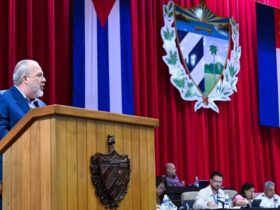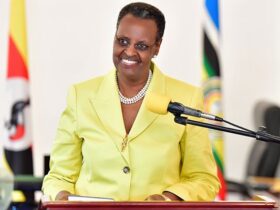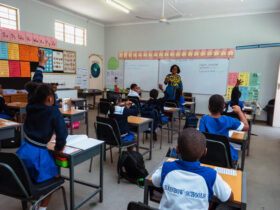
History of Mathematics in Tanzania; Mathematics has played an important role in Tanzania’s development, dating back to ancient times.
While it may seem like a modern discipline tied to classrooms and textbooks, the roots of mathematics in Tanzania go back to traditional practices like counting, trading, measuring, and farming.
Over time, mathematics evolved with the influence of colonization, education reforms, and globalization, shaping the way it is taught and applied today.
This blog post explores the fascinating history of mathematics in Tanzania, from its early beginnings in traditional societies to its role in modern education and development.

Early Mathematics in Tanzania
Mathematics in Tanzania did not start with formal schooling. Early societies used mathematical concepts in their daily lives, although these were not formalized as equations or formulas.
1. Traditional Counting Systems
- Many Tanzanian ethnic groups developed unique ways of counting and keeping records.
- For example, sticks, stones, and knots were used to record numbers, track livestock, or measure time during farming seasons.
- Some communities used base-5 and base-10 counting systems, which are the foundations of modern mathematics.
2. Measuring and Trading
- Mathematics was essential for trade and barter systems.
- Traders along the Swahili Coast, including those in Kilwa and Zanzibar, used mathematical concepts to measure goods and calculate trade values.
- Tools like scales and containers for measuring weight and volume showed practical applications of mathematics.
3. Agriculture and Timekeeping
- Farmers used mathematical skills to measure land, divide harvests, and plan planting cycles based on seasons.
- Observing the stars and the moon helped in determining the timing for planting and harvesting crops.
The Introduction of Formal Mathematics
Formal mathematics in Tanzania began with the arrival of colonists and missionaries in the late 19th and early 20th centuries.
1. Colonial Influence
- During German and British colonial rule, schools were established to educate Tanzanians, primarily to serve the needs of the colonial administration.
- Mathematics became a core subject, focusing on basic arithmetic, geometry, and measurement.
- The goal was to teach skills necessary for tasks like bookkeeping, construction, and agricultural planning.
2. Missionary Schools
- Missionaries introduced mathematics as part of their education programs in Christian schools.
- These schools focused on teaching basic arithmetic to help students read the Bible and handle simple calculations.
Post-Independence Era: Expanding Mathematics Education
After Tanzania gained independence in 1961, the government placed a strong emphasis on education as a tool for national development.
1. Ujamaa and Education Reform
- Under Julius Nyerere’s leadership, Tanzania adopted the Ujamaa (socialism) philosophy, which included education for self-reliance.
- Mathematics was integrated into the curriculum to empower students with skills for practical problem-solving.
- Schools were built across the country, making education, including mathematics, more accessible.
2. Curriculum Development
- The government worked with international organizations to develop a national curriculum.
- Mathematics syllabi were tailored to include basic arithmetic, algebra, geometry, and statistics.
- Emphasis was placed on connecting mathematical concepts to real-life applications like agriculture, trade, and technology.
Challenges in Mathematics Education
While progress was made, there were challenges that affected the teaching and learning of mathematics in Tanzania:
- Shortage of Teachers
- There has historically been a lack of qualified mathematics teachers, especially in rural areas.
- This shortage often led to large class sizes and limited one-on-one attention for students.
- Language Barrier
- Mathematics textbooks and resources were often in English, which was not the first language for many students and teachers.
- This made it harder for students to grasp complex mathematical concepts.
- Limited Resources
- Many schools, especially in rural areas, lacked basic resources like textbooks, calculators, and teaching aids.
- This gap affected the quality of education and the performance of students in mathematics.
Mathematics in Modern Tanzania
Today, mathematics is a cornerstone of Tanzania’s education system and plays a vital role in the country’s economic and technological development.
1. Mathematics in Schools
- Mathematics is a compulsory subject in primary and secondary schools.
- Students learn topics such as algebra, calculus, and probability, which prepare them for careers in engineering, finance, and science.
2. University Education
- Tanzanian universities, like the University of Dar es Salaam, offer advanced mathematics programs.
- These programs focus on applied mathematics, statistics, and mathematical modeling, which are essential in industries like agriculture, health, and information technology.
3. Mathematics and Technology
- The rise of technology in Tanzania has increased the demand for mathematical skills.
- Fields like software development, data analysis, and engineering rely heavily on mathematical principles.
Promoting Mathematics for the Future
Tanzania is taking steps to improve mathematics education and ensure it contributes to the country’s development.
- Teacher Training
- Programs are in place to train more mathematics teachers and improve their skills.
- Scholarships and incentives are offered to encourage students to pursue careers in teaching mathematics.
- Use of Technology
- Schools are adopting digital tools like e-learning platforms and online tutorials to make mathematics more accessible and engaging.
- Competitions and Clubs
- Mathematics competitions and clubs in schools are encouraging students to develop an interest in the subject.
- These activities help students see mathematics as a fun and rewarding field.
Conclusion
The history of mathematics in Tanzania reflects the country’s journey from traditional practices to modern education. From early counting systems and trade to advanced studies in universities, mathematics has been a key part of Tanzanian society.
Despite challenges, efforts to improve mathematics education continue, ensuring that future generations are equipped with the skills needed for personal and national development.
Related articles
- Top 10 Best Private Secondary Schools in Tanzania-Elimuhuru
- Top 50 Best Secondary Schools in Tanzania-Elimuhuru
- Education system in tanzania 2024-Elimuhuru
- Tanzania Education Statistics-Elimuhuru
- Scholarships in Tanzanian Universities-Elimuhuru
- Tanzania school fees: A Guide for Parents and Students
- International School of Tanganyika Fees-Elimuhuru
- Ahmes Secondary School Fees-Elimuhuru
- Ahmes Secondary School Application Form 2024-Elimuhuru









Leave a Reply